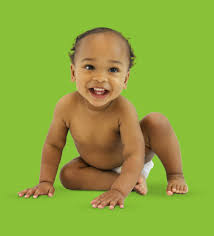
Wash hands after changing diapers, babies’ faeces not harmless, paediatrician tells mothers
It has been suggested that mothers discard the idea that baby poop is innocuous and wash their hands with soap after changing their infants' diapers.
The person in charge, Prof. Edamisan Temiye, a Consultant Paediatric Haematologist and Oncologist at the Lagos University Teaching Hospital, Idi-Araba, cautioned against improperly disposing of a baby's excrement because it can cause illnesses.
Temiye stated that some women do not wash their hands after changing their babies' diapers because they believe that baby poop is harmless and should be disposed of improperly.
The child health expert who responded to our email pointed out that no faeces, not even a newborn's, is safe.
"It is a misconception that babies' stool is harmless," the doctor clarified. Each stool needs to be disposed of properly in the sewage system.
“The moment a baby is born, the baby starts interacting with all the microorganisms in the environment, including the ones from the mother and the mother’s stool, the father’s stool, and the community’s stool.
"When adults use the restroom without washing their hands, they spread the bacteria to children when they handle and serve meals in communities where baby poop is not disposed of properly.
Because those germs reappear and a child with a weakened immune system may have diarrhoea, diarrheal illness is among the leading causes of death for children under five.
The doctor pointed out that because infants have weakened immune systems, improper disposal of their excrement may put them at risk for diarrhoea.
He listed diarrhoea as one of the top five causes of death for youngsters as well as one of the leading reasons.
Diarrhoea continues to be the greatest cause of death for young children, according to the UN Children's Fund.
"Diarrhoea is a major cause of death for children, with diarrhoea contributing to nearly 9% of all paediatric deaths globally in 2019." Considering that there is a straightforward treatment option available, this equates to more than 1,300 young infants dying per day, or around 484,000 children annually, according to UNICEF.
Temiye further informed our correspondent that stool could be a means of transmission for other ailments, such as typhoid sickness.
He claims that in addition to improper faeces disposal, parents who do not wash their hands before feeding their children might also expose them to hepatitis A.
"The risk associated with hepatitis A is that it can damage the liver to hut down completely and the person can die from liver failure” he added.
He further disclosed that poorly disposed of stool could also lead to worm infestation in children, which he said might result in malnutrition.
He declared, "The infant would become malnourished as a result of the parasitic worm eating food that the child ought to be eating. It is not normal for children to have intestinal worms.
Every mother was advised to practise proper cleanliness by the paediatrician.
He counselled disposing of a person's stool appropriately, regardless of age, starting from infancy.





